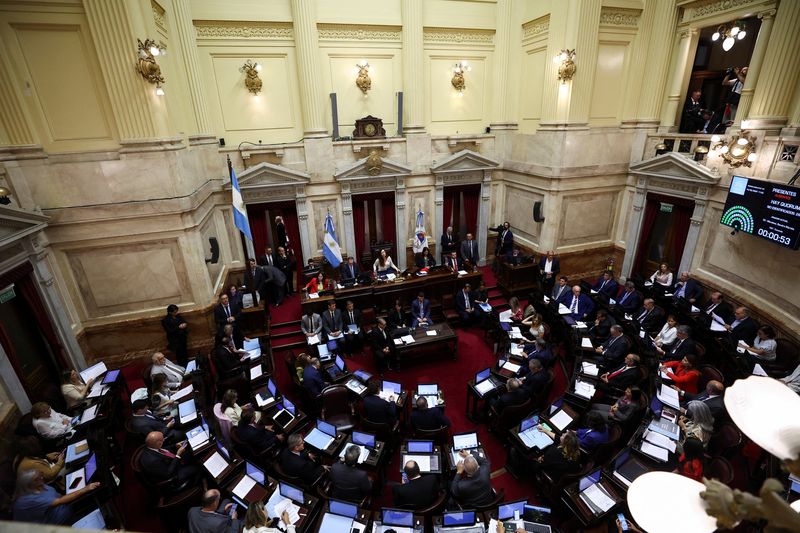
© Reuters. Argentina’s Vice President and President of the Senate Victoria Villarruel attends a lawmakers’ meeting to debate a necessity and urgency decree, whose objective is to deregulate the economy, among other measures, at the National Congress in Buenos Aires,
BUENOS AIRES (Reuters) – Argentina’s Senate on Thursday began a crunch debate on President Javier Milei’s sprawling “mega decree” of economic reforms, a major test of the libertarian leader’s ability to win over support in a fragmented Congress.
Milei, an outsider economist whose party has a minority in Congress, took office in December and used his powers of presidential decree to roll out measures ranging from privatizations to labor reforms. However, the decree can be overturned if both chambers of Congress reject it.
The president’s party has just 37 of 257 seats in the lower house and seven senators out of a total of 72.
Thursday’s debate in Congress raised the possibility that the new government could be dealt another legislative defeat after lawmakers last month put the brakes on a separate proposed package of sweeping reforms.
In a statement released late on Wednesday, Milei’s office called on lawmakers “to not be captivated by the siren song of those who try to ‘score’ short-term victories to the detriment of the future of 45 million Argentines.”
The December decree in question, issued just days into the new president’s government, kicked off Milei’s shock treatment approach to Argentina’s chronic economic ills, a plan that included his devaluation of the local peso by more than 50%.
The government’s measures have managed to move the country’s fiscal and trade imbalances in a favorable direction, while also taking a toll on much of the population. Annual inflation surged to 276% last month, with poverty levels climbing to 57% of the population.







